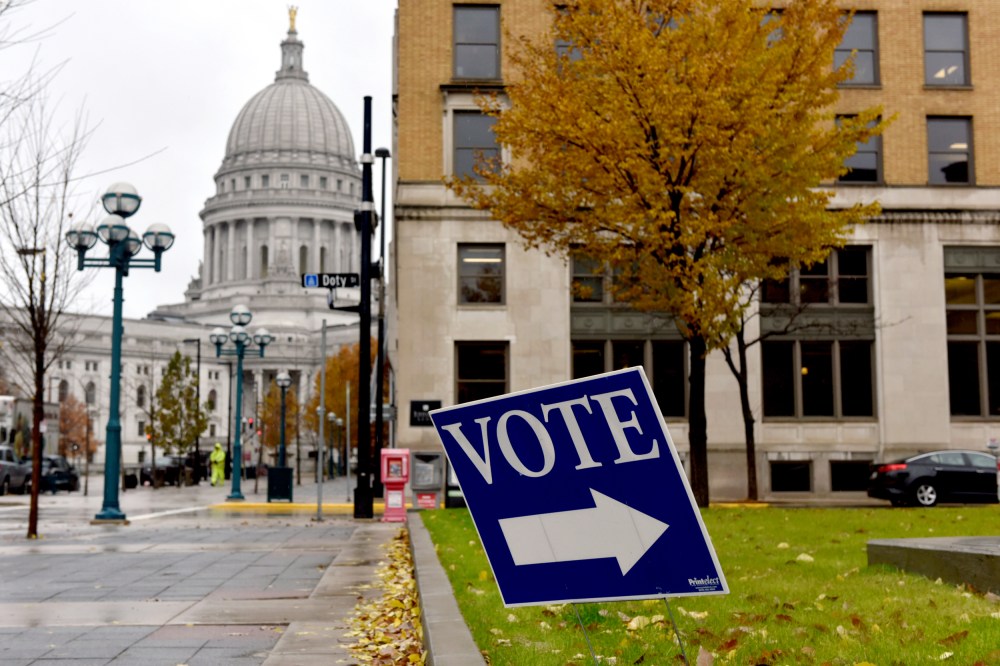After disappointing results in 2016, Democrats had a good year in Wisconsin in 2018, with big wins up and down the ballot. As we discussed at the time, Wisconsin voters elected a Democratic governor, re-elected a Democratic U.S. senator, re-elected a Democratic secretary of state, and elected a Democratic state attorney general. Even in the state legislature, Democratic candidates easily won the most votes.
Republican officials in the state could’ve honored the results. Instead, they responded to the defeats in the most unhealthy way possible: They launched a radical power-grab to undermine the winning candidates’ governing options.
Robin Vos, the Speaker of the Republican-led state Assembly, defended his party’s tactics, arguing three years ago, “We are going to have a very liberal governor who is going to enact policies that are in direct contrast to what many of us believe in.”
In other words, GOP officials disagreed with the voters’ choices, so they felt justified in ignoring democracy. In their model, the right to govern doesn’t come from the electorate; it comes from what Republicans decide they’re willing to tolerate.
Political scientist Seth Masket wrote three years ago this month, “Wisconsin has been one of the best functioning democracies in the U.S. for at least a century. What’s going on in Wisconsin today shouldn’t be dismissed as just one state’s experience. If democracy can die there, it can die anywhere.”
The relevance of that assessment continues to linger.
In 2020, Democrats had another good year in the Badger State — the party’s presidential ticket narrowly carried Wisconsin, reversing a defeat from four years earlier — at which point local Republicans grew even more brazen in their rejection of democracy.
In fact, a year ago this month, after the state Supreme Court affirmed President Biden’s victory in Wisconsin and electors met in the state capitol for an official ceremony, Wisconsin Republicans held a separate, fake ceremony — in the same capitol, at the same time — to cast electoral votes for Donald Trump, despite his defeat.
They then proceeded to forge the official paperwork and sent it to, among others, the U.S. Senate and the U.S. Archivist, as if it were legitimate.
In the months that followed, Wisconsin Republicans, unsatisfied with the official results, the initial count, the statewide recount, and an audit, launched a bizarre “investigation” into the state’s 2020 elections. To lead the effort, GOP officials tapped former Wisconsin Supreme Court Justice Michael Gableman — a “Stop the Steal” conspiracy theorist and former Trump appointee.
Who better to investigate anti-election ideas — in a fair and impartial fashion, of course — than a partisan conspiracy theorist from Trump’s own team?
As regular readers may recall, Gableman acknowledged that he doesn’t have “any understanding of how elections work.” He also issued strange subpoenas, demanded materials that are already publicly available, and sent error-filled requests to the wrong local officials.
Making matters quite a bit worse, Gableman appeared on a conservative radio show to compare The Milwaukee Journal Sentinel to Nazi propaganda, complete with multiple Joseph Goebbels references. Gableman also showed up at a city council meeting in Green Bay, where he suggested an election investigation is warranted based on some unidentified stuff he saw online.
He was soon joined by a Republican lawyer who fought to overturn the election, a Republican from Trump’s White House who sought out those perceived as disloyal to Trump, and a different Republican lawyer who worked for the Trump campaign. The entire crew, GOP officials agreed, would be paid with taxpayer money to conduct a “neutral” election examination.














